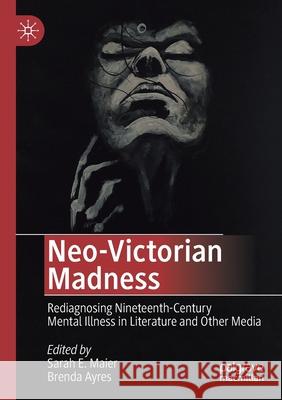Neo-Victorian Madness: Rediagnosing Nineteenth-Century Mental Illness in Literature and Other Media » książka
topmenu
Neo-Victorian Madness: Rediagnosing Nineteenth-Century Mental Illness in Literature and Other Media
ISBN-13: 9783030465841 / Angielski / Miękka / 2021 / 308 str.
Neo-Victorian Madness: Rediagnosing Nineteenth-Century Mental Illness in Literature and Other Media
ISBN-13: 9783030465841 / Angielski / Miękka / 2021 / 308 str.
cena 563,56
(netto: 536,72 VAT: 5%)
Najniższa cena z 30 dni: 501,19
(netto: 536,72 VAT: 5%)
Najniższa cena z 30 dni: 501,19
Termin realizacji zamówienia:
ok. 22 dni roboczych
Bez gwarancji dostawy przed świętami
ok. 22 dni roboczych
Bez gwarancji dostawy przed świętami
Darmowa dostawa!
Kategorie:
Kategorie BISAC:
Wydawca:
Palgrave MacMillan
Język:
Angielski
ISBN-13:
9783030465841
Rok wydania:
2021
Wydanie:
2020
Ilość stron:
308
Waga:
0.39 kg
Wymiary:
21.01 x 14.81 x 1.73
Oprawa:
Miękka
Wolumenów:
01
Dodatkowe informacje:
Wydanie ilustrowane











